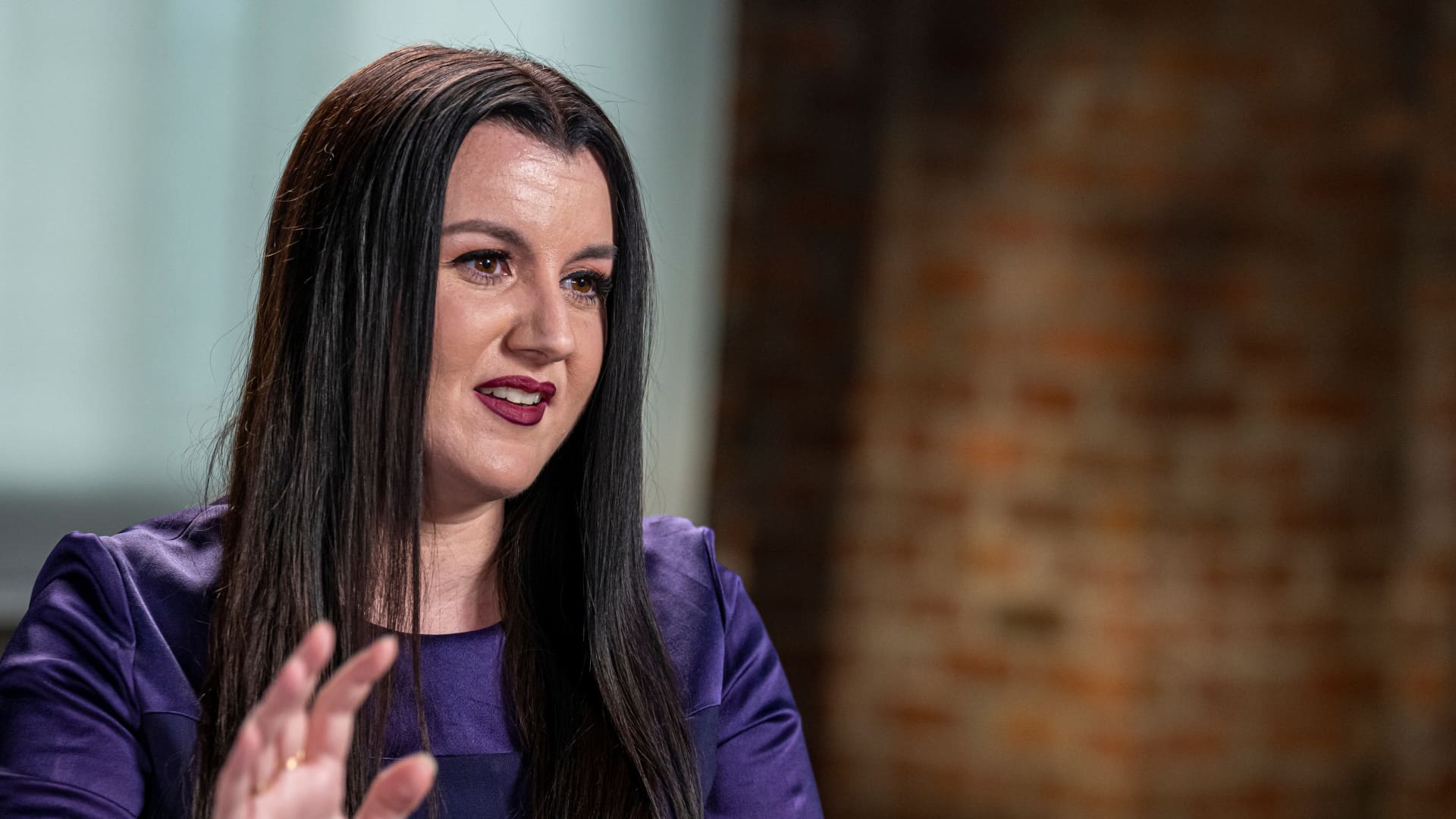Products You May Like
Instacart, the grocery-delivery company that saw its business boom during the pandemic, priced its long-awaited IPO at $30 a share on Monday, and will become the first notable venture-backed tech company to hit the U.S. public market since December 2021.
The offering came in at the top end of the expected range of $28 to $30 a share, and values Instacart at about $10 billion on a fully diluted basis. There were 22 million shares sold in the initial public offering, with 14.1 million coming from the company and 7.9 million from existing shareholders. The stock is set to debut on the Nasdaq Stock Market on Tuesday under ticker symbol “CART.”
The 11-year-old company, which delivers groceries from chains including Kroger, Costco and Wegmans, had to drop its stock price dramatically to make it appealing for public market investors. In early 2021, at the height of the Covid pandemic, Instacart raised money at a $39 billion valuation, or $125 a share, from prominent venture firms like Sequoia Capital and Andreessen Horowitz, along with big asset managers Fidelity and T. Rowe Price.
The tech IPO market has been largely shuttered since December 2021, as inflationary pressures and rising interest rates pushed investors out of risk and led to a plunge in the prices of internet and software stocks. Instacart’s performance, along with the upcoming debut of cloud software vendor Klaviyo, could help determine if other billion-dollar-plus companies in the pipeline are willing to test the waters.
Instacart has sacrificed growth for profitability, proving in the process that its business model can generate earnings. Revenue increased 15% in the second quarter to $716 million, down from growth of 40% in the year-earlier period and about 600% in the early months of the pandemic. The company reduced headcount in mid-2022 and lowered costs associated with customer and shopper support.
Instacart started generating earnings in the second quarter of 2022, and in the latest quarter reported $114 million in net income, up from $8 million a year prior.
At $10 billion, Instacart will be valued at about 3.5 times annual revenue. Food-delivery provider DoorDash, which Instacart names as a competitor in its prospectus, trades at 4.25 times revenue. DoorDash’s revenue in the latest quarter grew faster, at 33%, but the company is still losing money. Uber’s stock trades for less than 3 times revenue. The ride-sharing company’s Uber Eats business is also named as an Instacart competitor.
The bulk of Instacart’s competition is coming from Amazon as well as big brick-and-mortar retailers, like Target and Walmart, which have their own delivery services. Target acquired Shipt in 2017 for $550 million.
Sequoia is Instacart’s biggest investor, with a fully diluted stake of 15%. While the Silicon Valley firm is sitting on a paper profit of over $1 billion on its total investment, the $50 million in shares it purchased in 2021 are now worth about one-quarter that amount.
Instacart co-founder Apoorva Mehta owns shares worth over $800 million, and is selling a small portion of them in the IPO. Mehta has been executive chair since the company appointed ex-Facebook executive Fidji Simo as his successor as CEO in 2021. Mehta is resigning from the board in conjunction with the IPO, and Simo is assuming the role of chair.
Goldman Sachs and JPMorgan Chase are leading the deal.
Only about 8% of Instacart’s outstanding shares were floated in the offering, with 36% of those sold coming from existing shareholders. The company said co-founders Brandon Leonardo and Maxwell Mullen are each selling 1.5 million, while Mehta is selling 700,000. Former employees, including those who were in executive roles as well as in product and engineering, are selling a combined 3.2 million shares.
